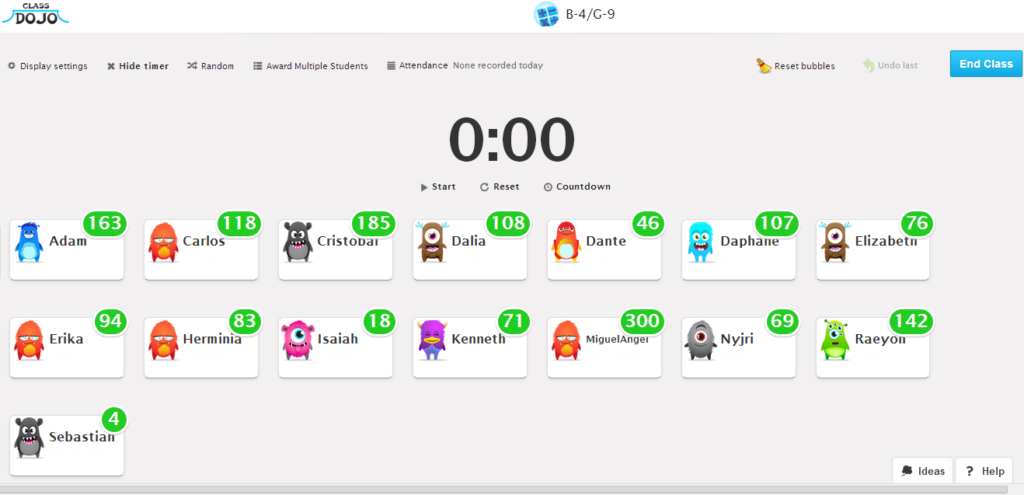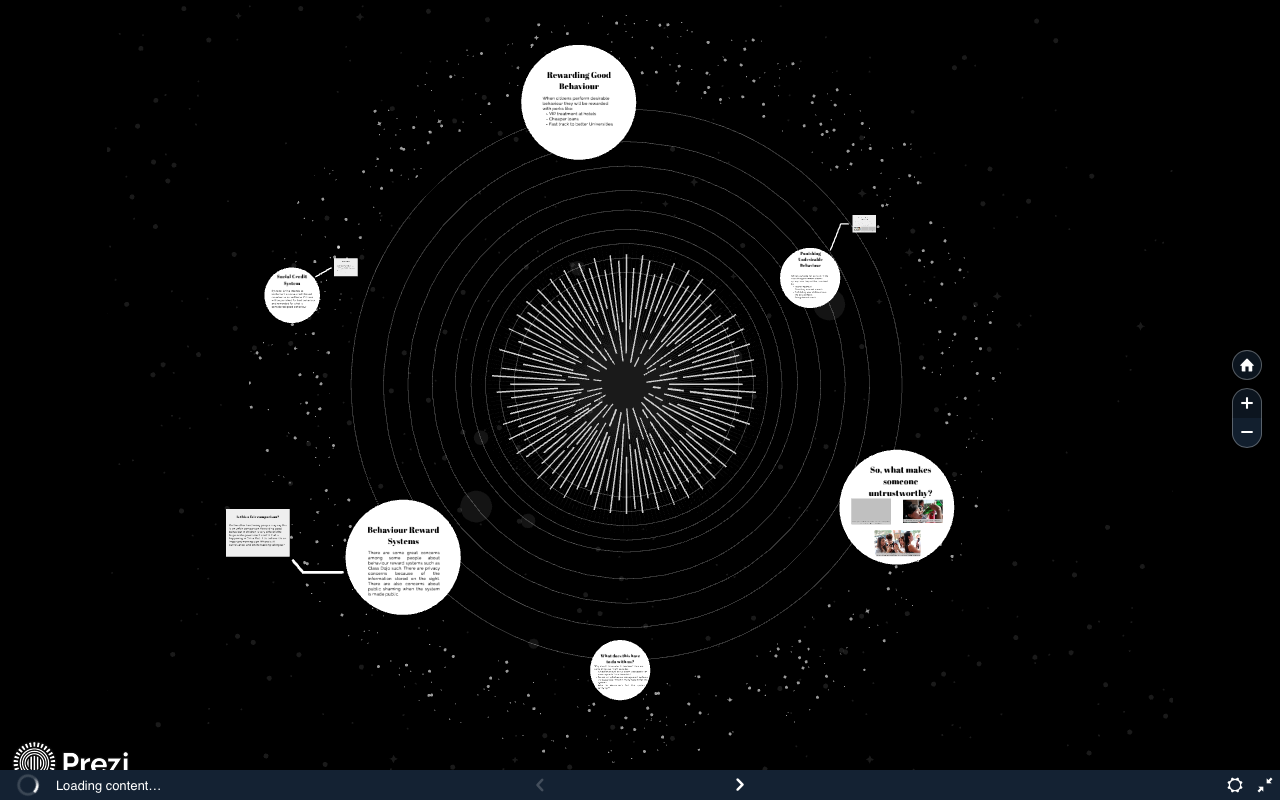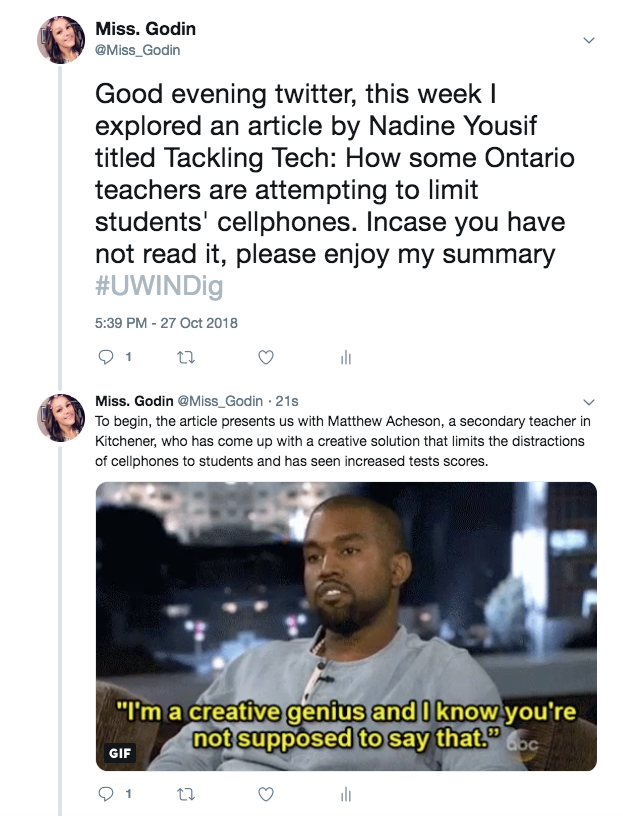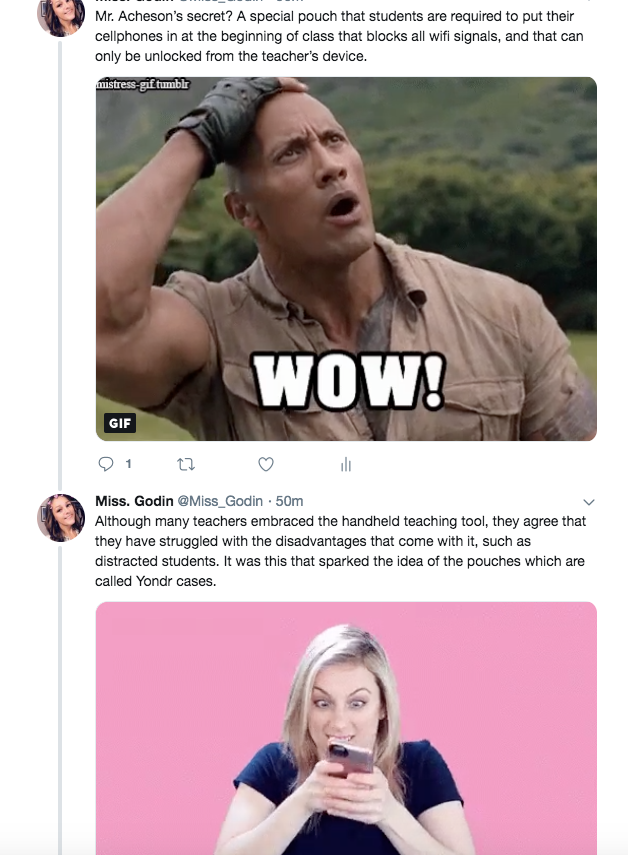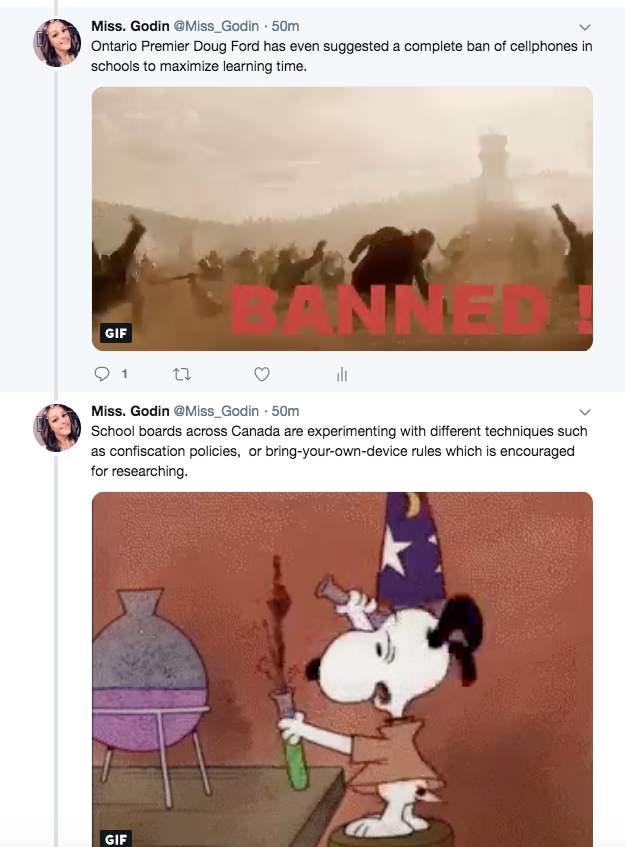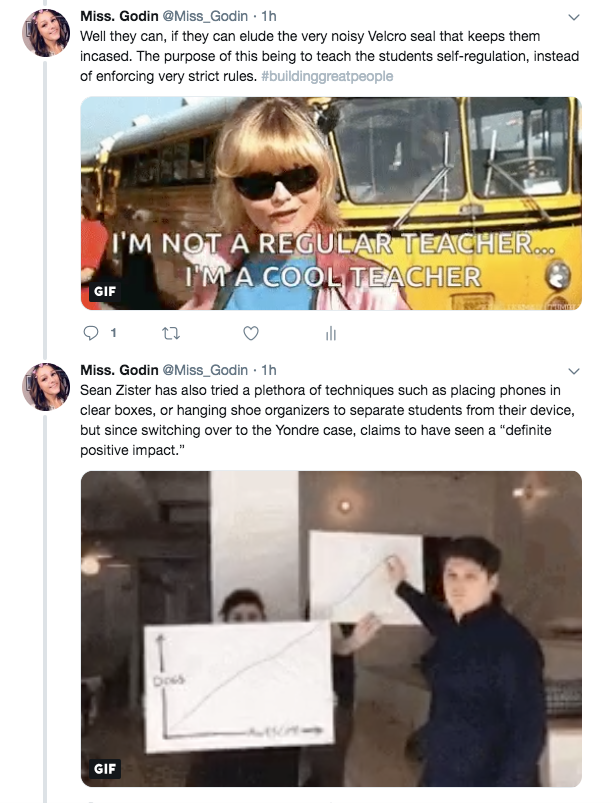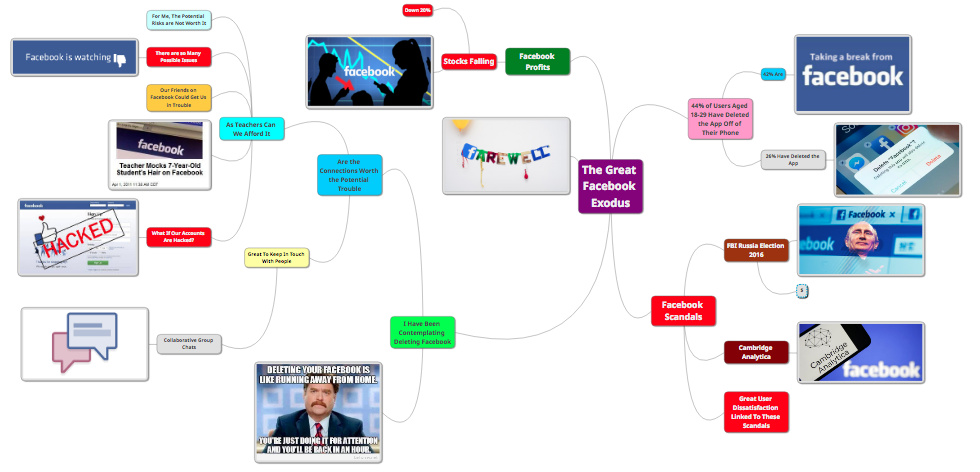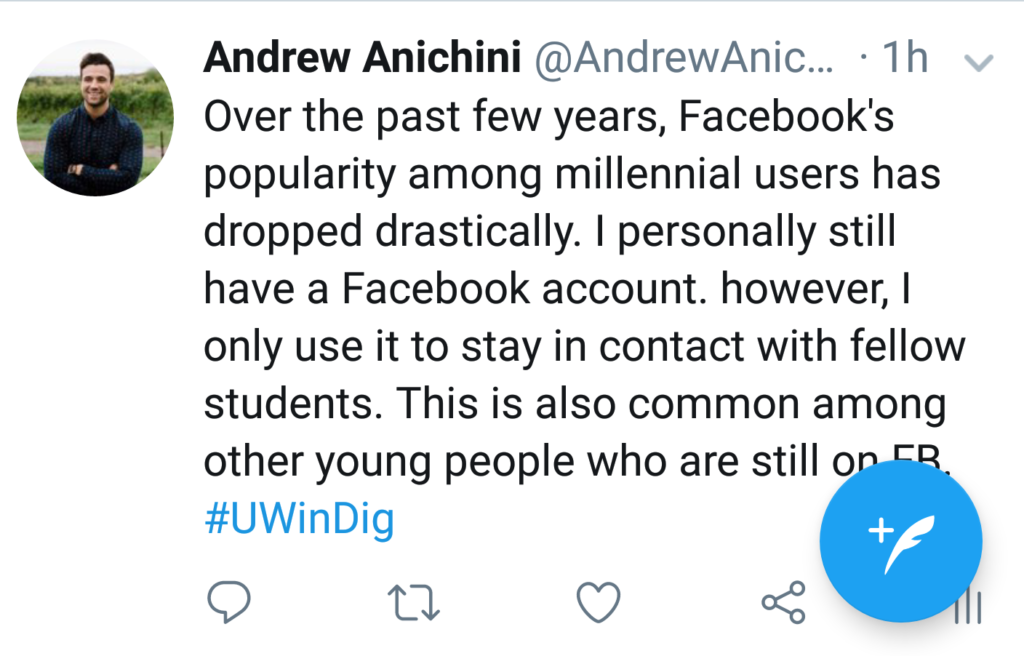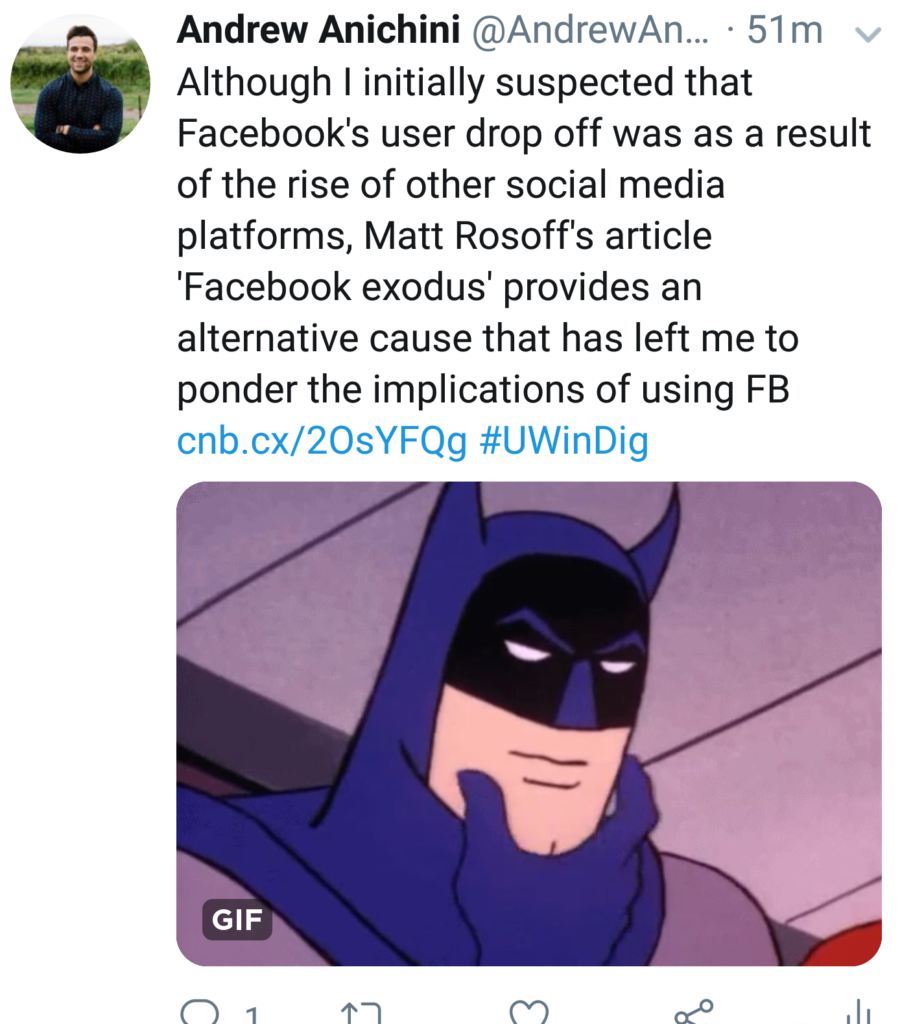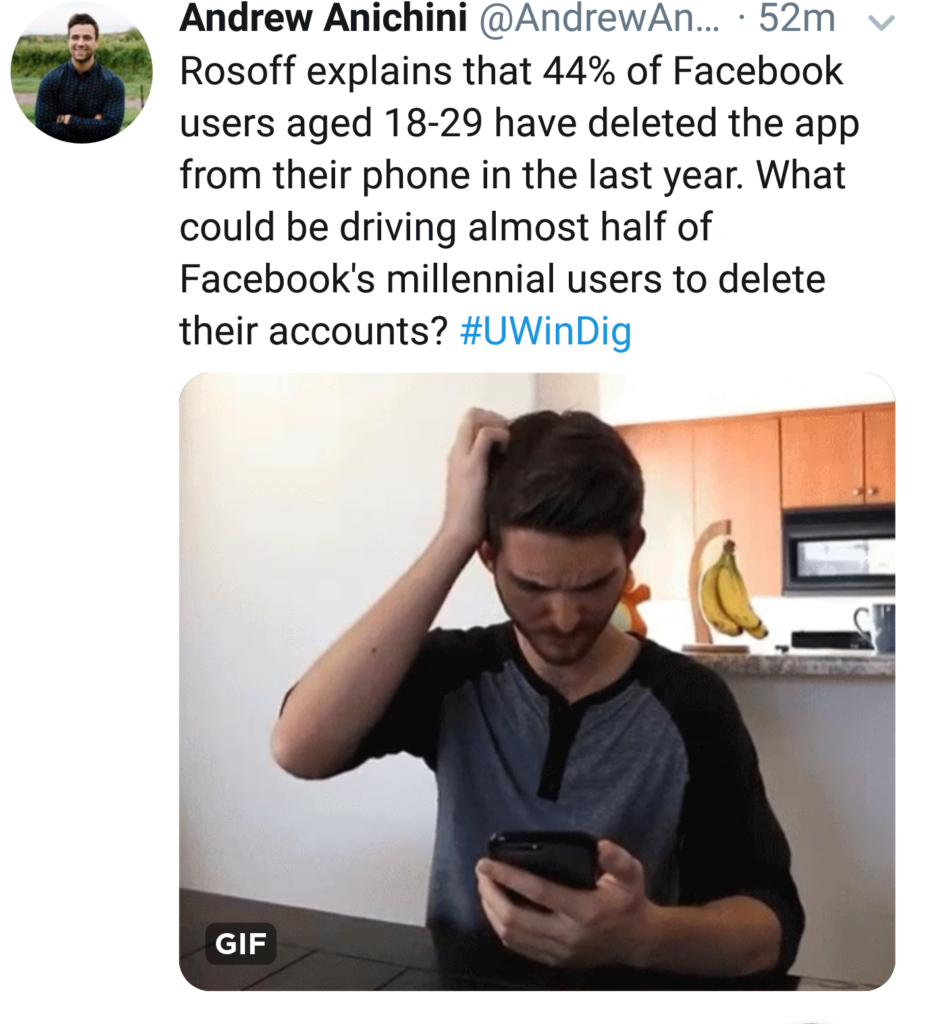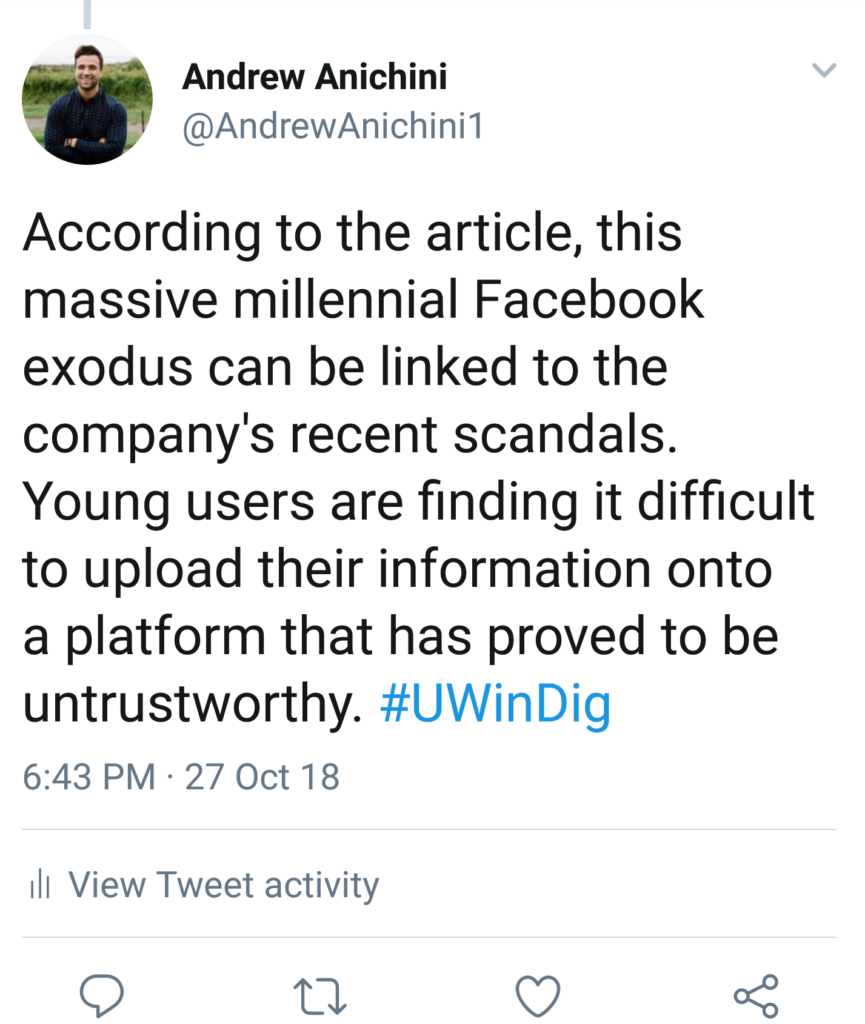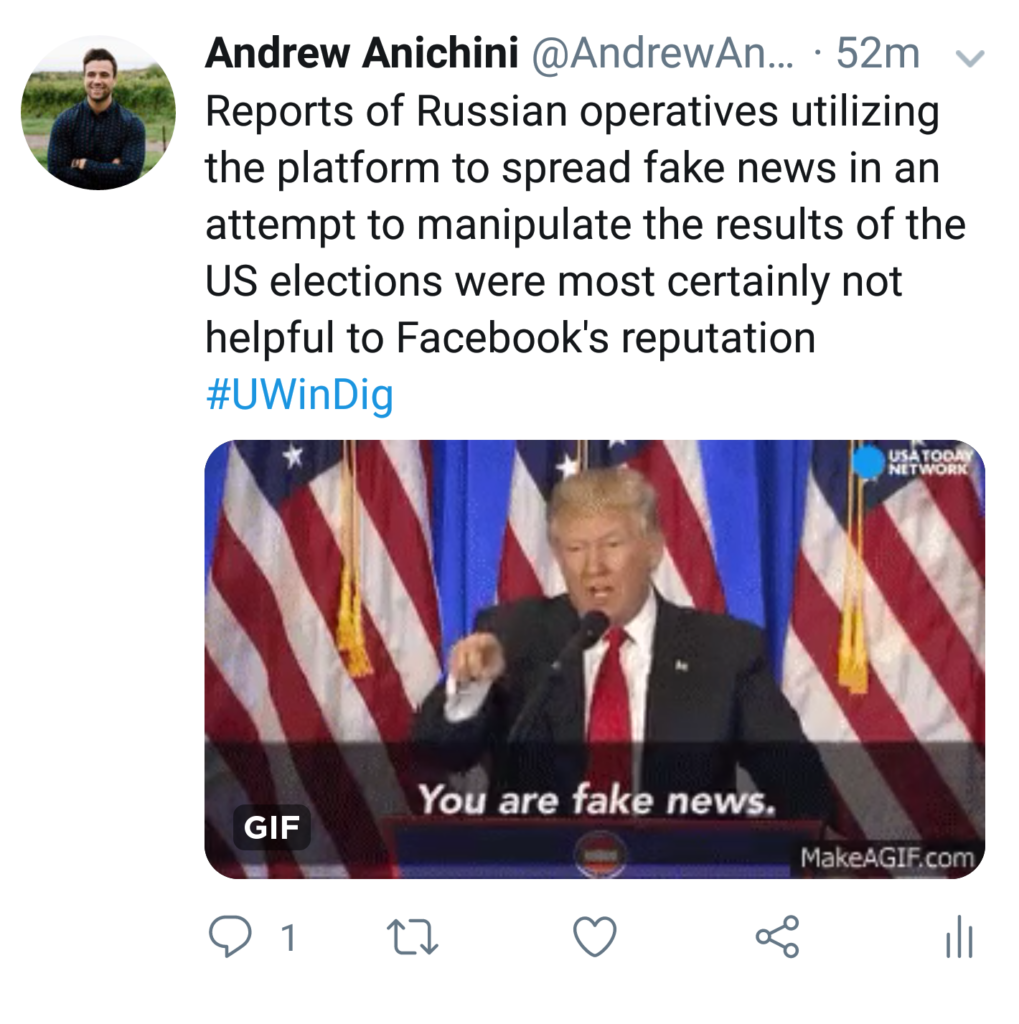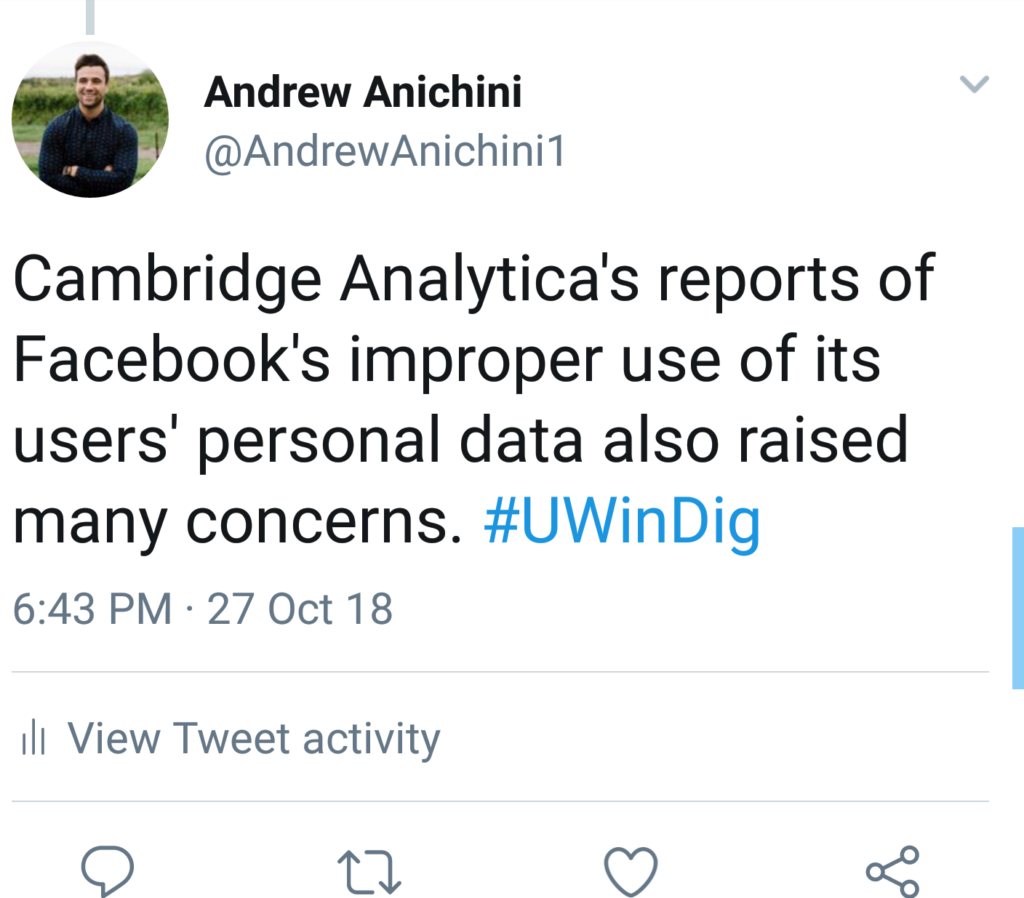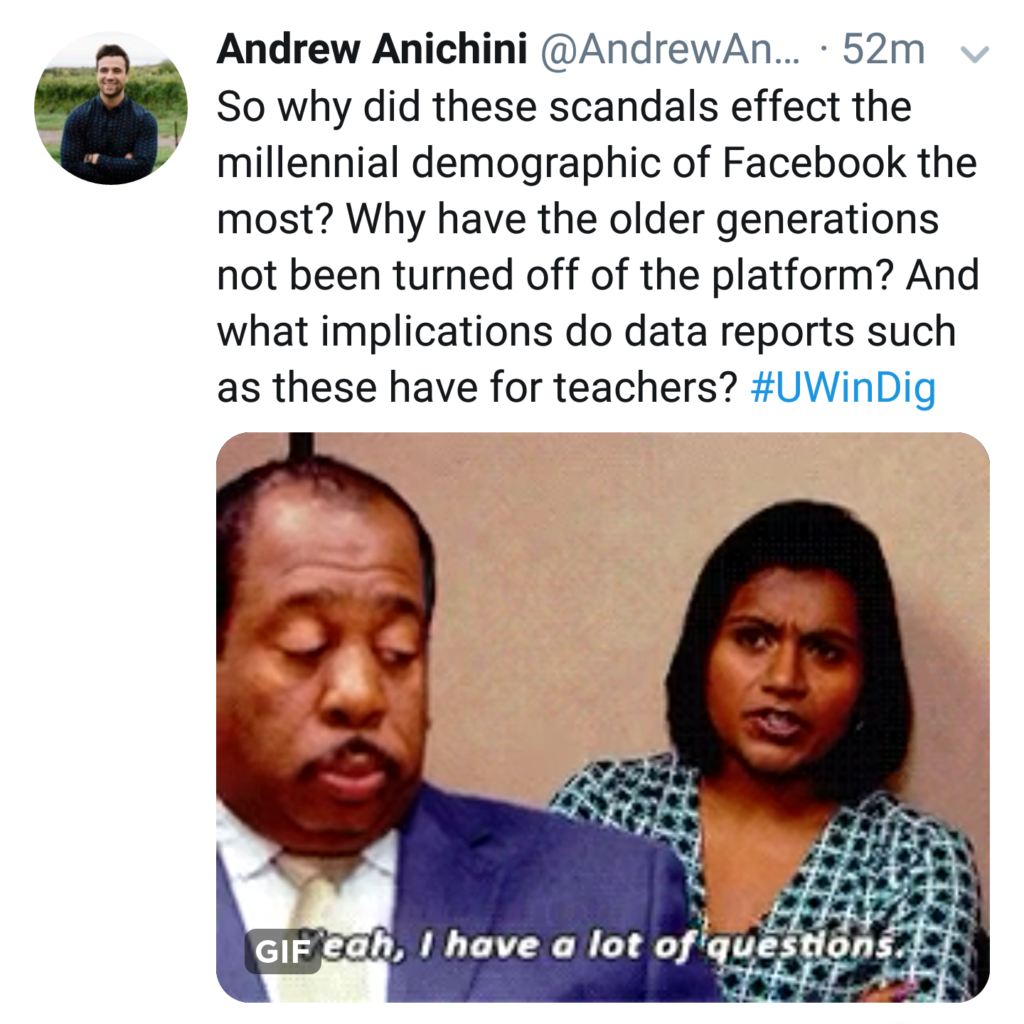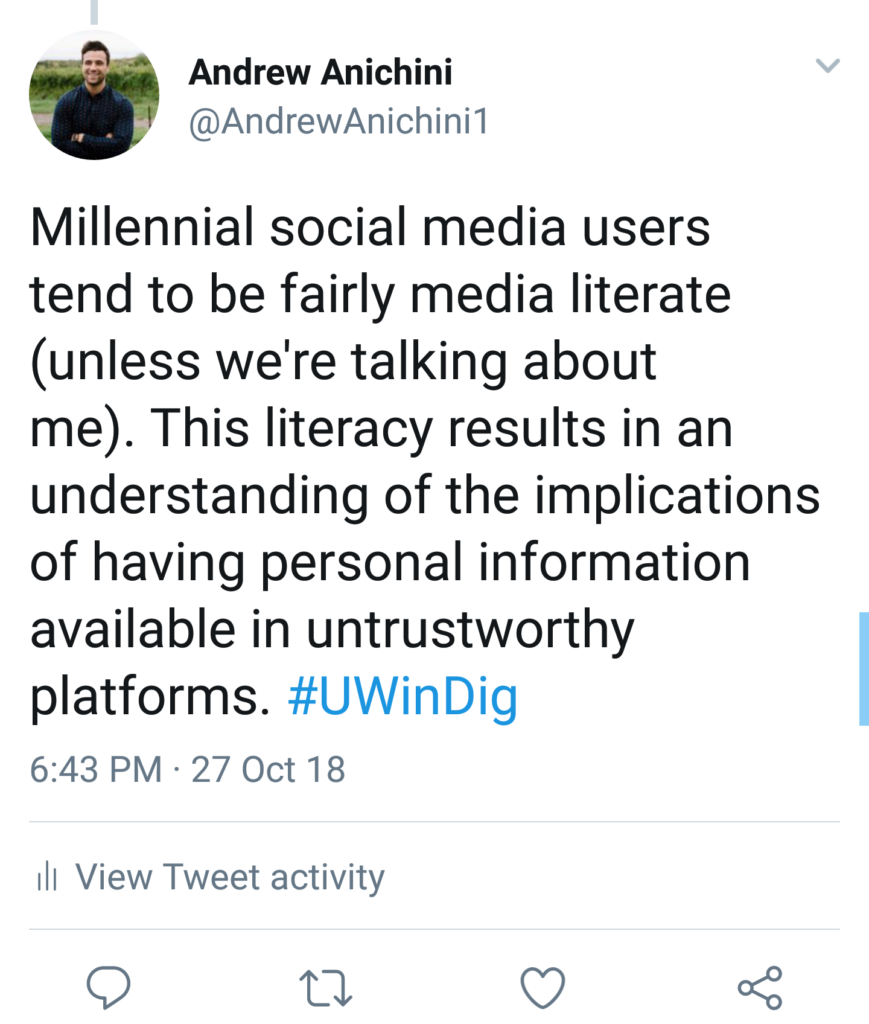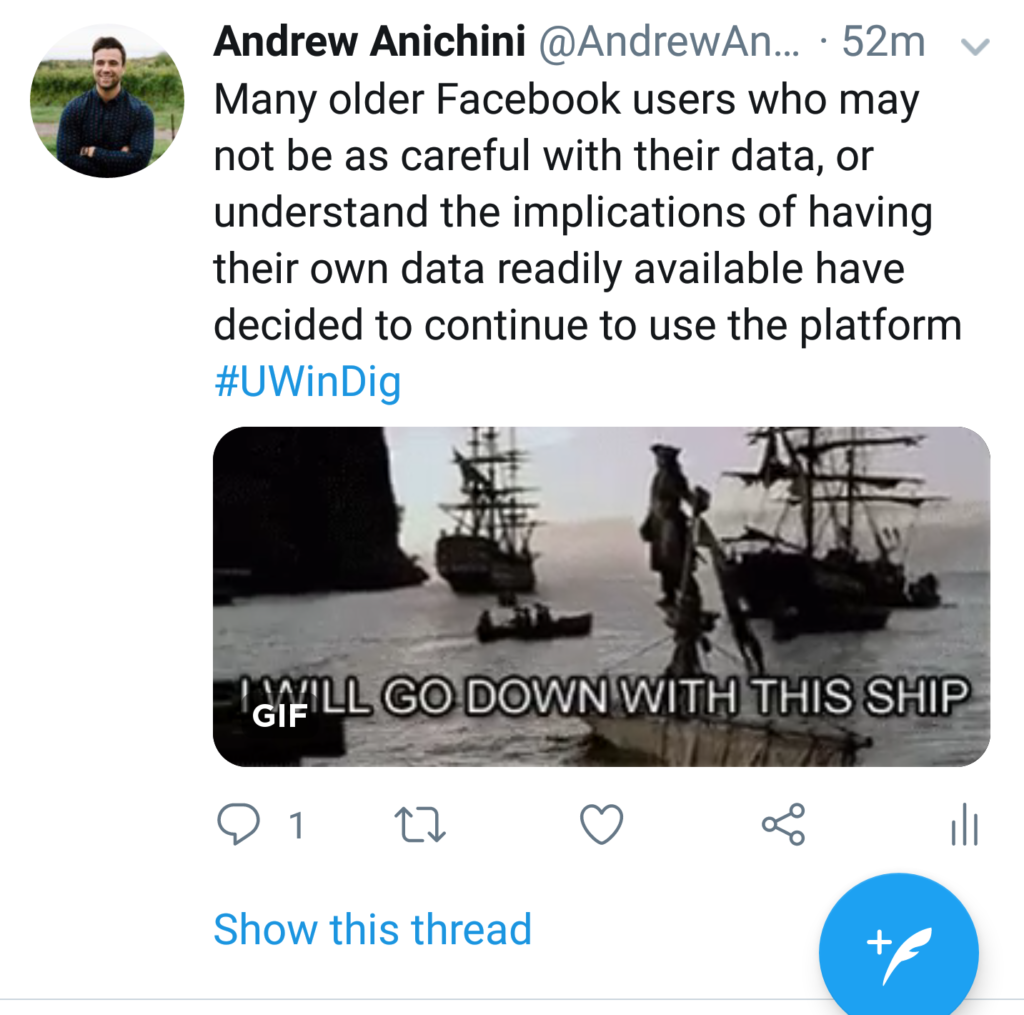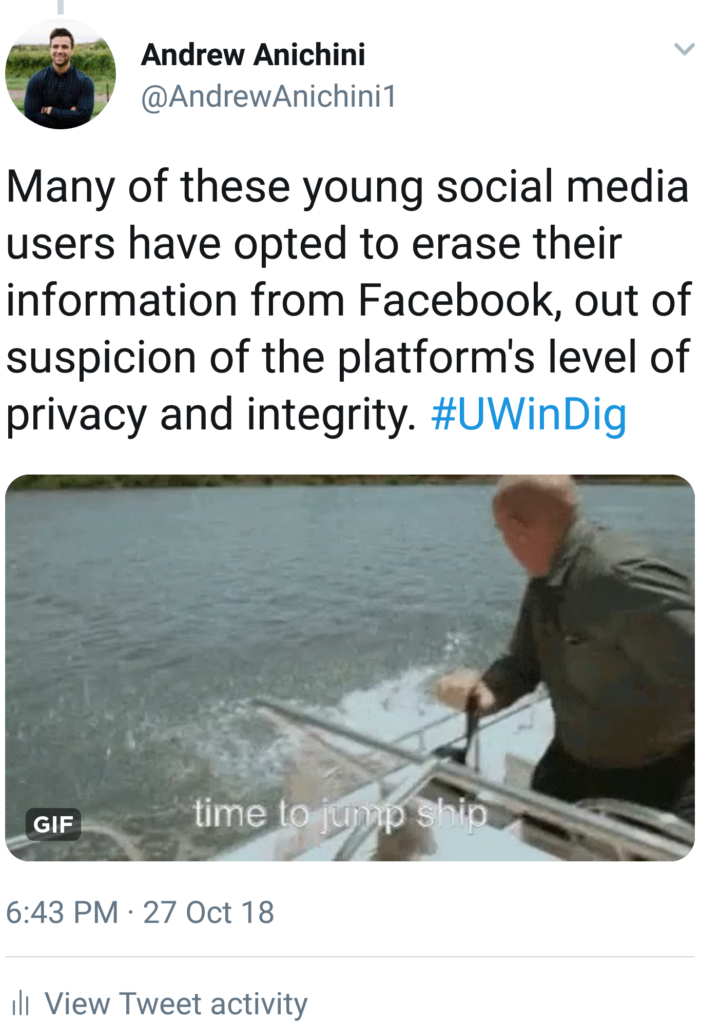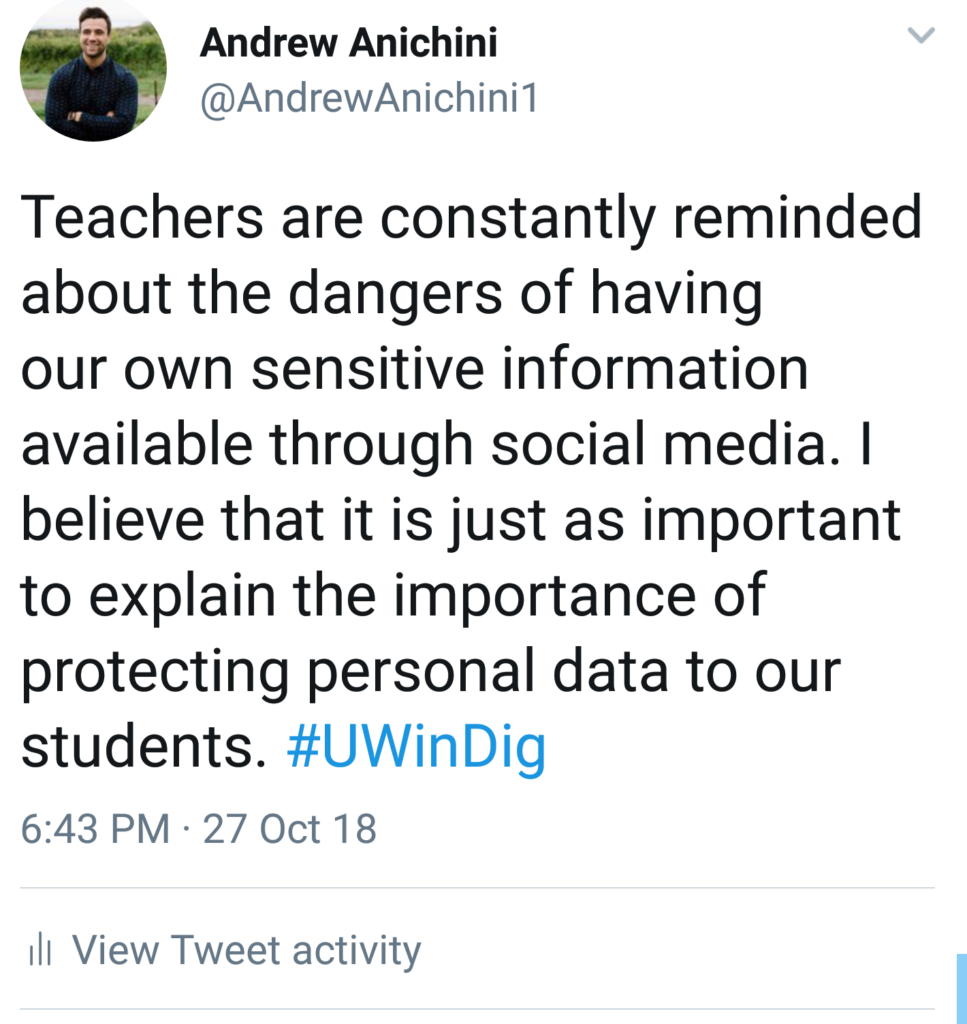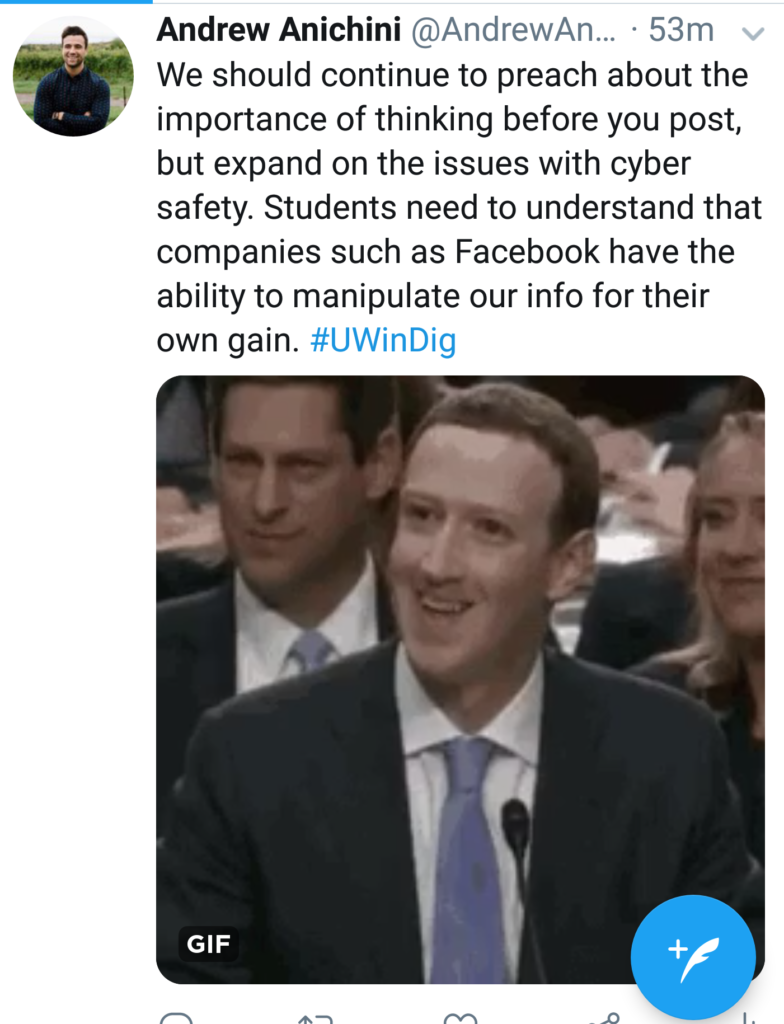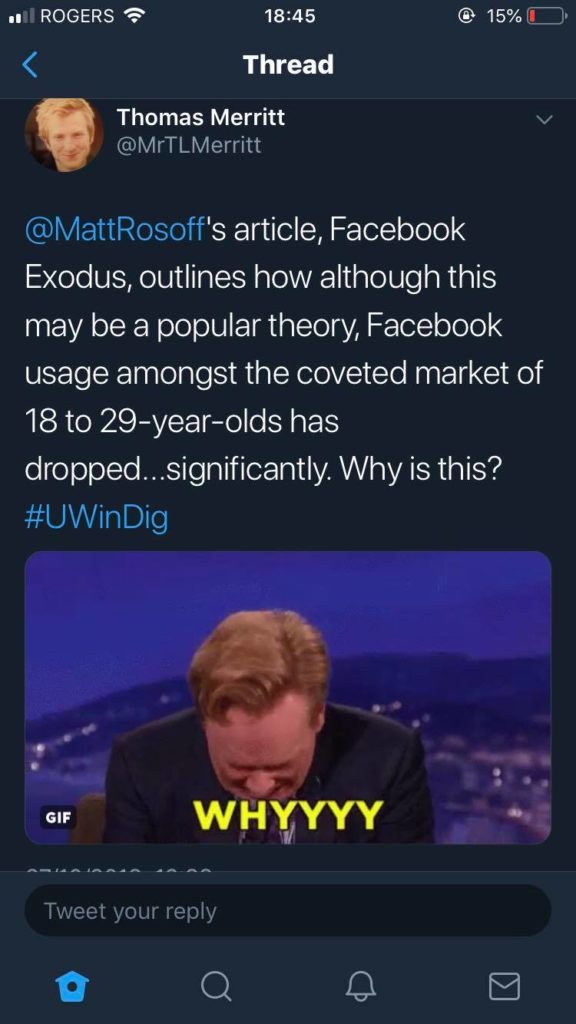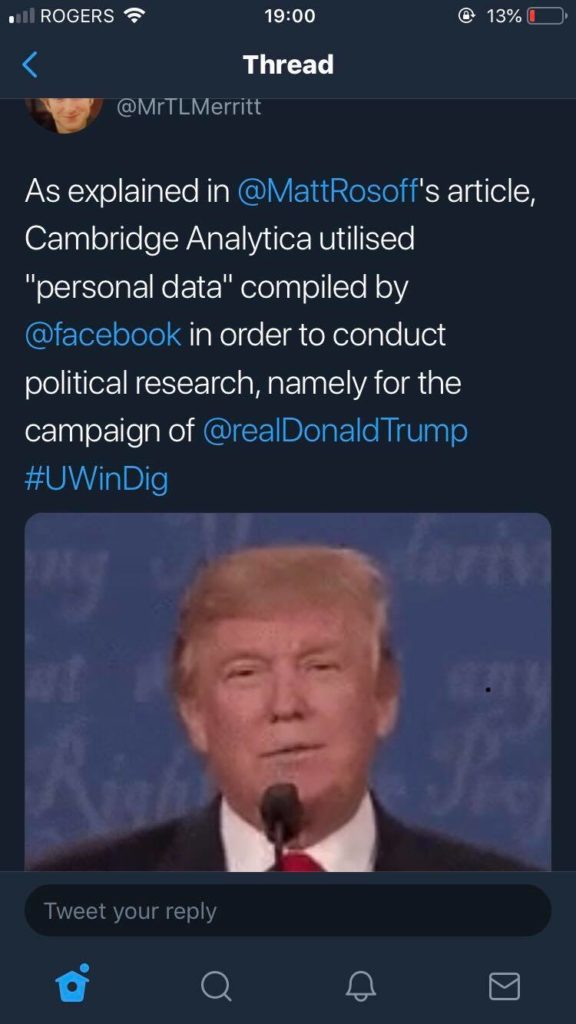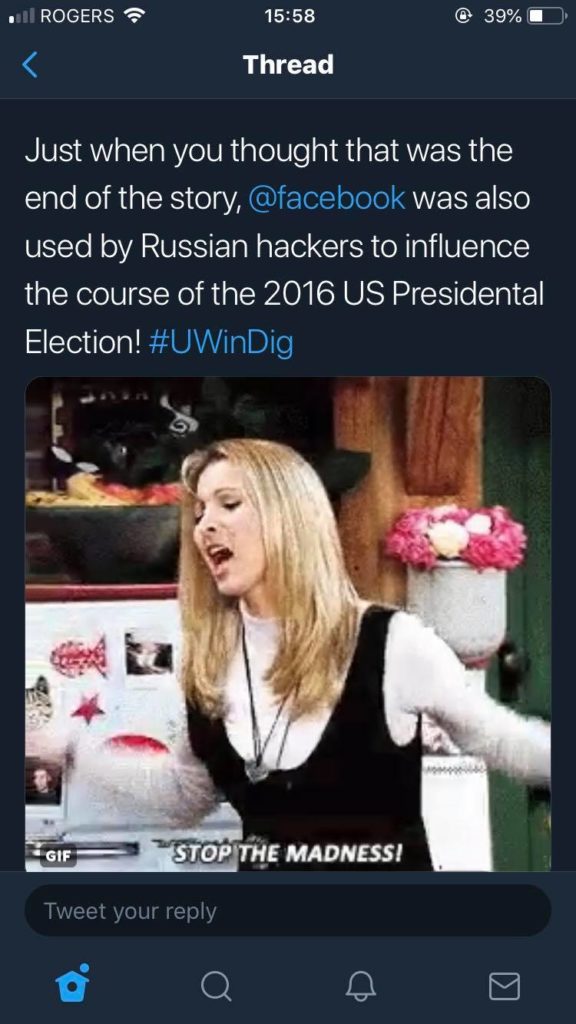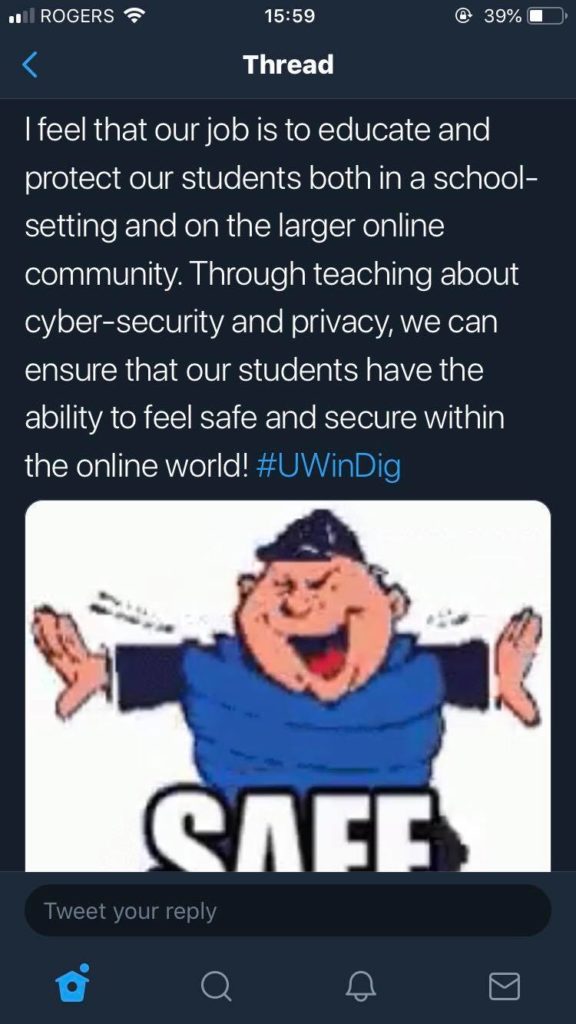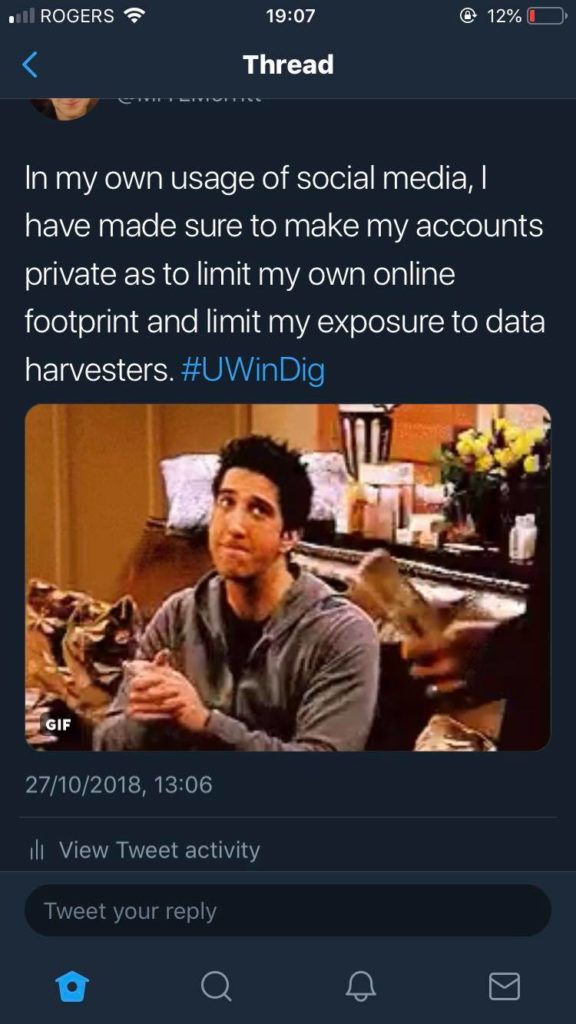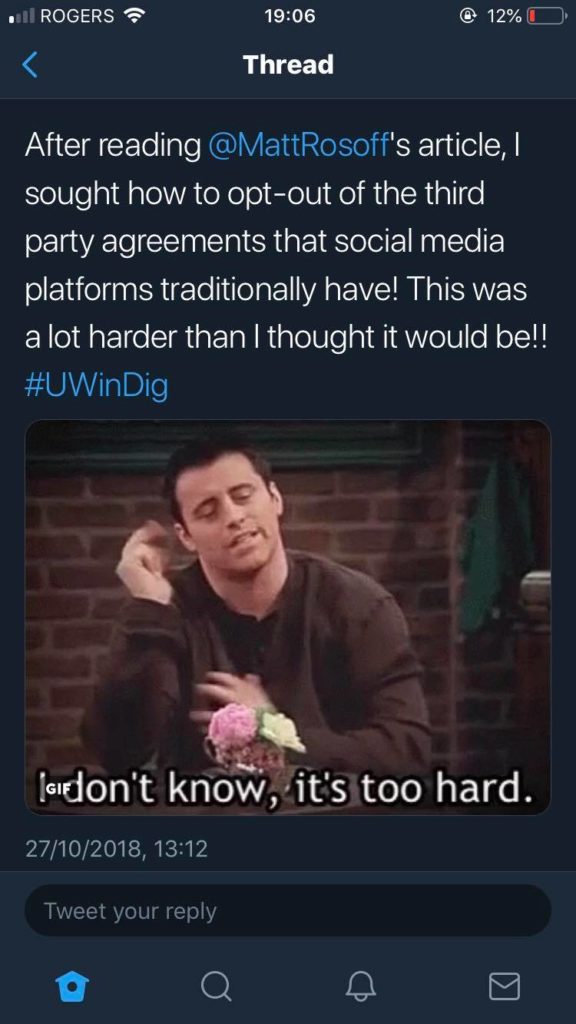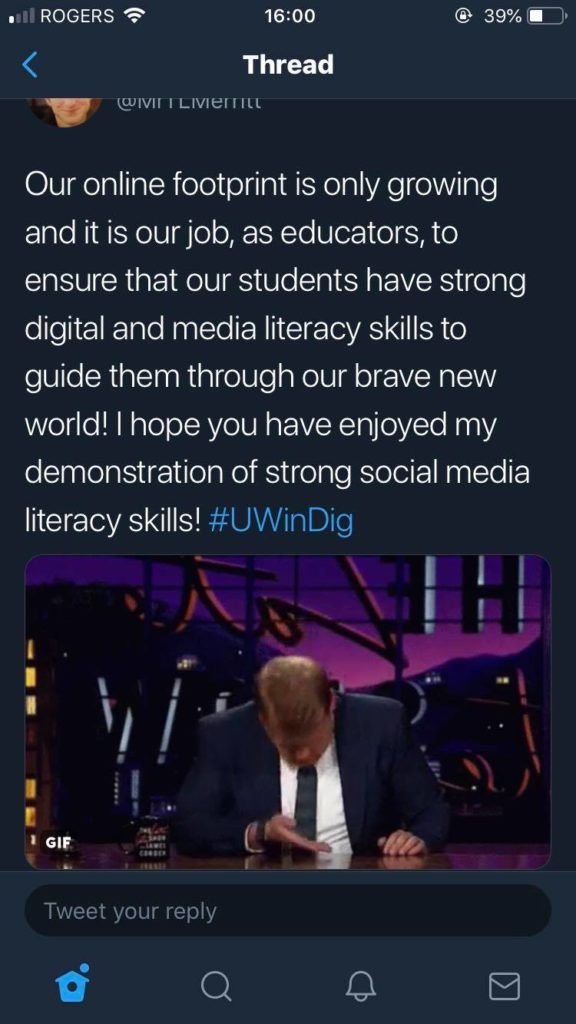In the article, laptops, classrooms, and matter of electrate concern, they discuss the use of laptops in the classroom. The discussion surrounds whether the laptops have a positive or negative effect on a student’s learning. The article discusses a study done to test the use of laptops and found that students who use a laptop to write notes result in lower understanding on tests and those also distracted by students using laptops result in lower understanding as well. It then goes to explain that the education system needs to rethink their views of laptops. Instead of disregarding the use of laptops, educational systems should rework their pedagogy to fit the use of laptops. The word that the article says is “electracy instruction”, which is the shift towards this new type of pedagogy that should be implemented into the classrooms.
I agree with the article- I believe that we need to shift towards this type of electronic-centered pedagogy. The use of laptops in the classroom are becoming more popular among students. Throughout my years of going to school I always wrote my notes; but, being French Immersion made that difficult for me. I was not able to write notes fast enough during lessons and it made it difficult for me to read them afterwards. I am also a perfectionist so when I handwrite notes I get distraught when my notes become disorganized. Throughout high school, I was told that we were not allowed to use to laptops to write notes; so, I continued to handwrite my notes even though that wasn’t the best method for me. Once I reached post-secondary I saw other students writing notes on their laptops which influenced me to give it a try. After writing notes for 5 years I have found that I am less stressed, and I am more organized. I also found using Microsoft Word made it easier and faster for me to write notes. This method improved my learning and I strongly believe that we allow students to choose as well. Each student learns differently and finding that note taking method is important to allow the student to be able to learn. What I learned from this article is that there are ways to execute this new pedagogy into my classroom effective. For example, the article mentions leaving the front two rows for students that don’t want to be distracted by laptops. That method could work to allow students that prefer to handwrite notes for my lessons they will be able to do it effectively and it won’t affect their learning.
There are benefits of using laptops in the classroom as well that help the students to improve their learning. Students can have online collaborations, in ways such as talking to other students from different classes or schools, or they have the ability to be able to collaborate with students in their class in online-discussions. I have done online discussions over the past few years and they allowed me to learn new information that I would have never found myself. Another benefit is being able to search more information, for example if a student does not understand a certain concept or term, they can immediately look it up on their laptops to better understand. The students will also have different ways for to learn the information, such as videos, images, or interactive websites. I am a visual learner, so going on the Internet to understand a concept better helps me to grasp it rather than only listening to the information being taught. The next benefit is the students will have organization. The students need organization in order to succeed, the laptops have notes that can be left on their home screen and there is a calendar built into the laptop that leaves notifications. I use my calendar on mine and it has helped me to stay organized and complete tasks on time. The next benefit is teachers can assign work online, such as on open source learning websites. Students use their laptops almost daily and assigning work online will help students keep on tracker with what is coming up. When I was in elementary and high school assignments had to be written down in my planner or given to me as a handout, but now the Internet allows for teachers do both, give a handout and assign it online. I have found it much easier for me to be check Blackboard for my assignments rather than having to carry around my binder with the assignments. The next benefit is review/feedback process is easier for teachers. If students hand their assignments in online the feedback and edits can be given instantly rather than waiting to give it to students. If assignments are close together I find it beneficial to get my feedback and edits faster to be able to start the next assignment. The next benefit is it improves student’s computer skills, which becomes useful for the students. The students will be using computers in the future for their jobs as it has become a desirable trait to have. As a student becoming a future teacher having computer skills is important, I had to teach myself how to use computers and now using my laptop more often has helped me to work towards better computer skills. These are the benefits of having laptops in the classroom and ways to improve students’ learning.
There are different ways that laptops can be useful to facilitate students learning in the classroom and outside of the classroom. A new teaching style is starting to become popular, which is called flipped classroom learning. The flipped classroom style is assigning a video or an article the night before a class to give the students an idea on what they are going to be learning the next day. I didn’t experience this kind of learning until university, which I would have liked to learn more this way. The students will be required to answer questions or come prepared to discussion the topic beforehand that way they have a little bit of knowledge before the lesson. The other usefulness of having laptops in the classroom is having online discussions, this could be with fellow colleagues in the classroom or with other individuals around world. I got to experience talking to another student from a different school in grade 8, which we called a pen pal. In the classroom we would write letters to our pen pal, but it became lengthy and difficult getting the letters back and forth. The technology now-a-day allows for faster responses to other schools or places. The other way that laptops can be used is to do research during lessons or for assignments. During the lessons students do not understand every aspect that is being taught and having access to a laptop allows them to research aspects in which they do not fully understand. Throughout high school if I didn’t understand an aspect of the lesson I would not think about or research it until I had to study that aspect. Now with laptops students are able to search for terms or concepts in an instant. The other way that a laptop can be used is to do online quizzes, rather than printing off multiple quizzes, the students could access them on the Internet. There are sites that I have used in the past, such as Quizlet or Plickers. I found them to be very useful to give students marks on their learning either after a lesson or the next day. The other usefulness of laptops is to edit, review, or give feedback either from the teacher or fellow students. I used a website called Peergrade that allows students give feedback to their fellow classmates. This will help students to learn new things from their fellow classmates and to practice edit and giving feedback to others. These are some of the many ways that allowing and using laptops in the classroom are useful.
With all these benefits there are limitations to having laptops in the classroom. The first limitation is students becoming distracted on their laptops. During lessons when students no longer have the attention span during lessons they begin to message friends, check emails, or go on social media. This could affect their marks, but that depends on the students as well as some can still succeed on tests if they only get distracted for a few minutes. I have become distracted during lessons as well during school, but I still succeeded in my classes and went onto to working towards my dream job. The other limitation is students not having access to the Internet or laptops. Some or a majority of students may not have access to laptops or to the Internet, but there are solutions to that problem as well. Schools are now assigning iPads or Chromebooks to students that need them to use in school and at home. The teachers will also have to allow students to work on assignments in class to make it fair for all students. I have always been lucky enough to have access to Internet and a computer to work on my assignments, which I understand not everyone has. These are the limitations of using laptops in the classrooms.
I choose to do an infographic for my multimedia reflection, I choose this because my family was sent an infographic for our Russell’s 3on3 Hockey Tournament fundraiser and it inspired me to do one as well. I have never made an infographic in the past and making one for this made me nervous. I didn’t know how much information is too much or not enough. After making one though I feel more comfortable making it, I understand more what goes on them and how the organization aspect of them is important. The infographic I created is my view of having laptops, so I put an introduction, the benefits, a statistic, the limitations, the applications, and a conclusion. These certain things will help individuals to decide whether they agree with my view or not.
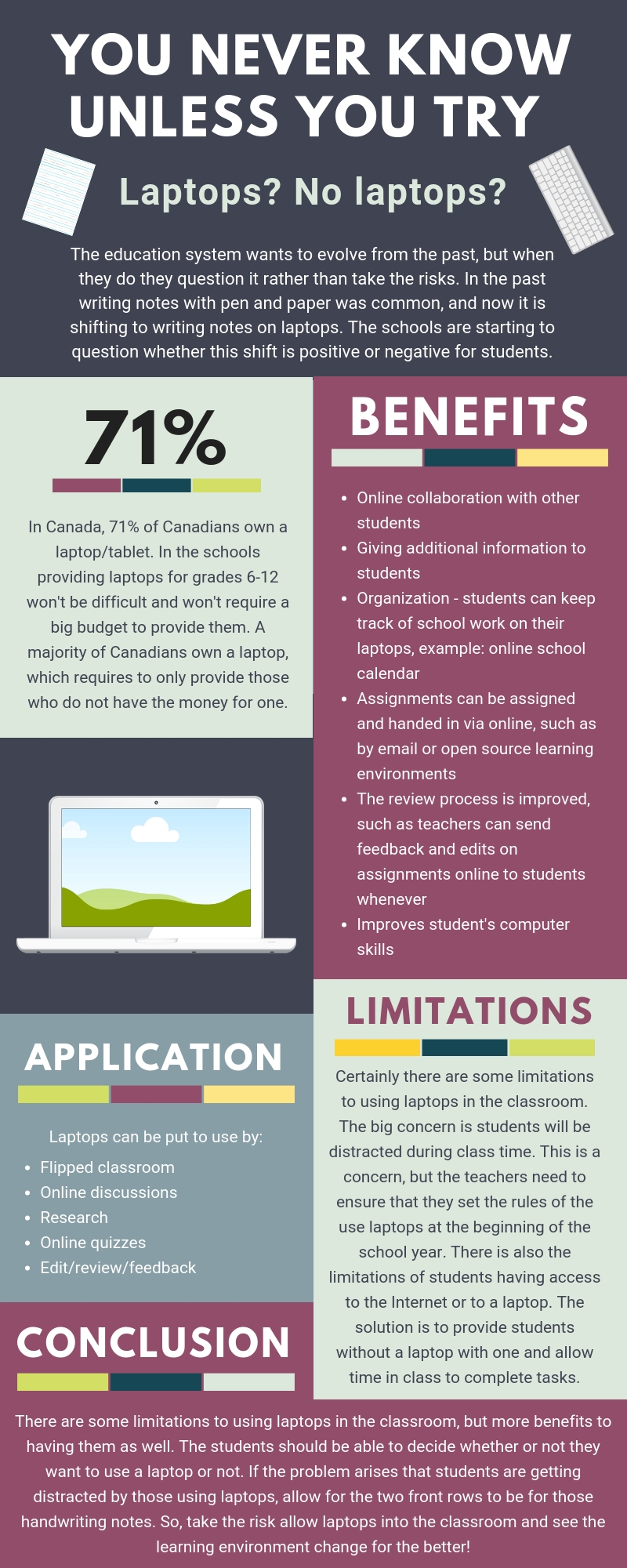
Infographic – You Never Know Unless You Try here is a PDF version as well.

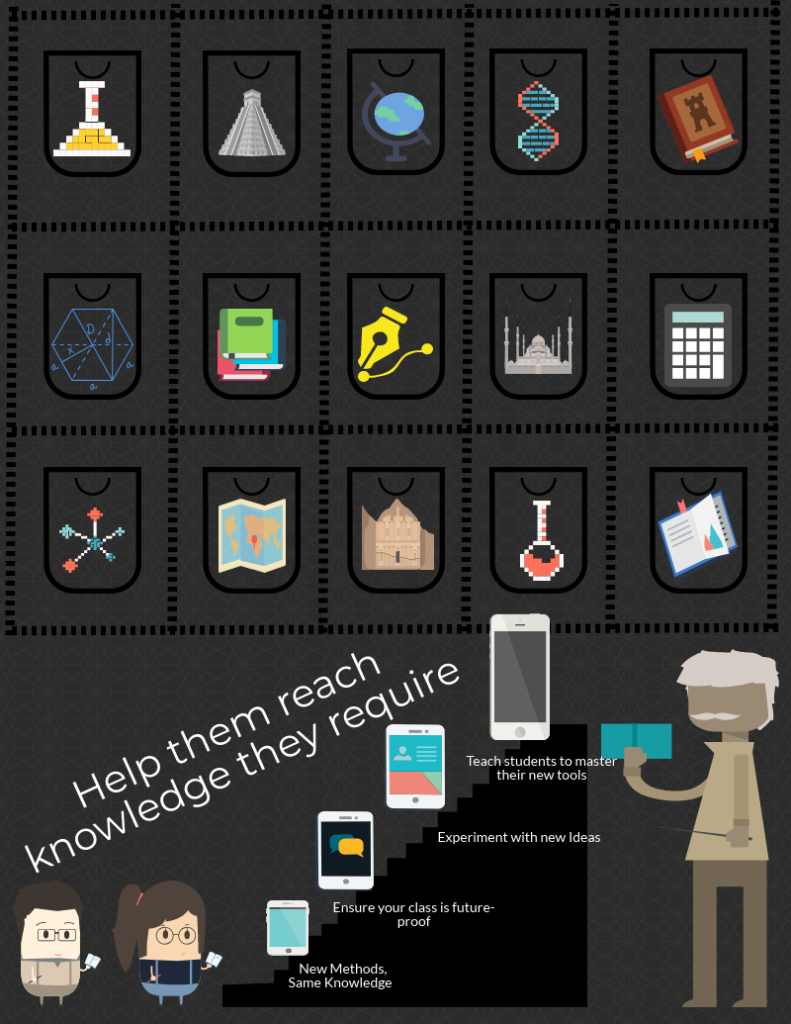
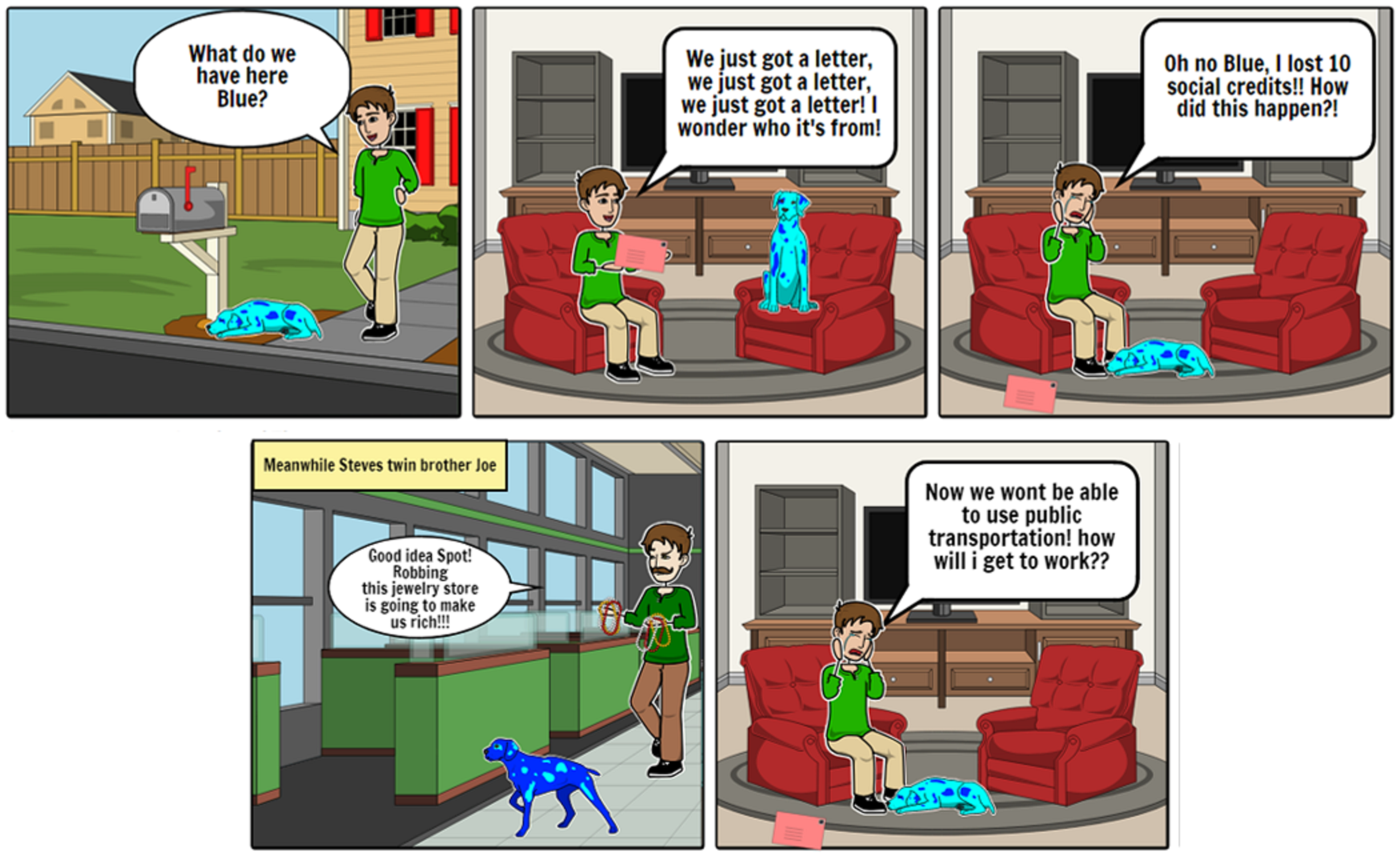
 2020 not directly relatable to education in the Western world. It reads as the script of a Black Mirror episode (in fact, it eerily reflects
2020 not directly relatable to education in the Western world. It reads as the script of a Black Mirror episode (in fact, it eerily reflects 